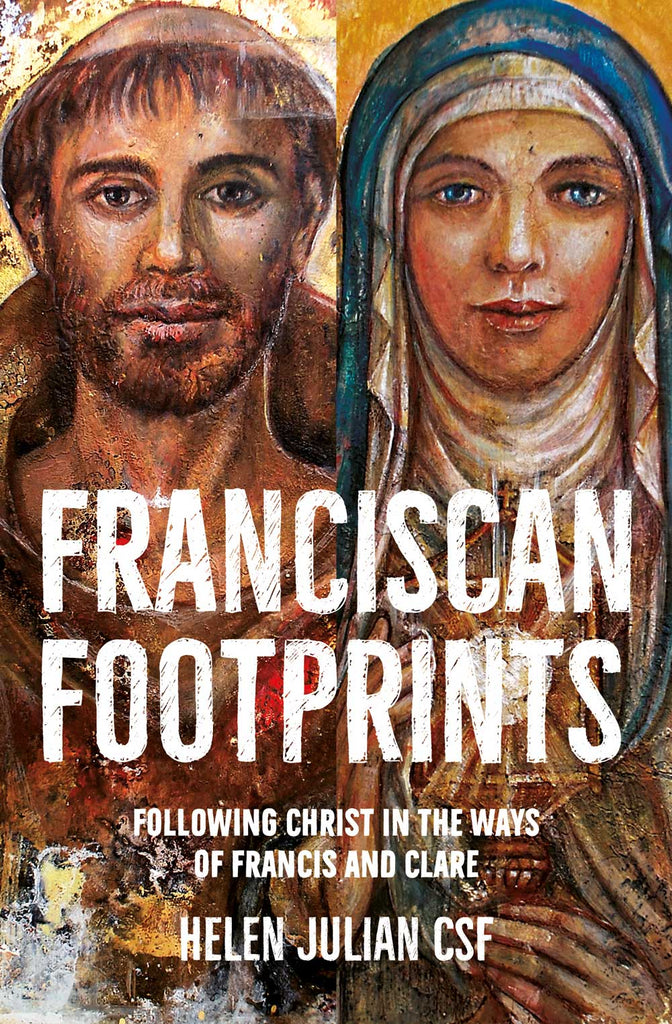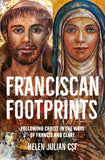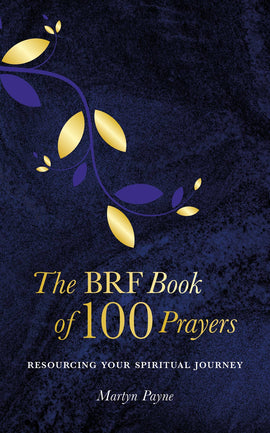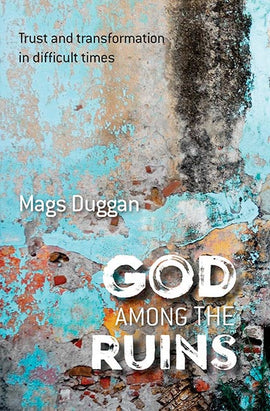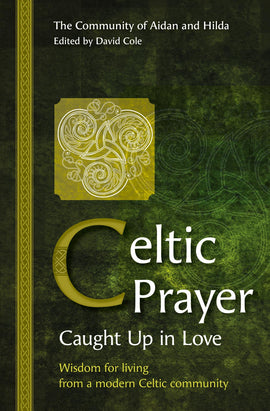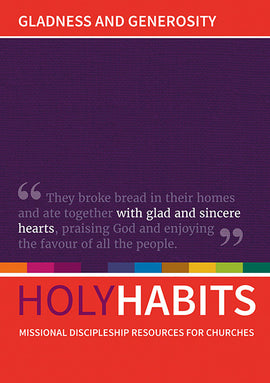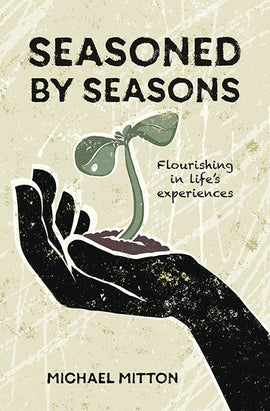Franciscan Footprints: Following Christ in the ways of Francis and Clare
Enrich your Christian journey through the wisdom of Franciscan spirituality
There are many ways of following Christ – each footprint is unique. One of these, the Franciscan spiritual journey, has been tried and tested over the centuries, and the experiences of St Francis and St Clare and all those who have been inspired by their lives still resonate with us. Helen Julian CSF explores the distinctive features of their spirituality and shows how these practices can be applied to, and become part of, our daily lives.
Through stories of care for creation, social justice, mission, preaching, contemplative spirituality and simple living, discover your own pathway today.
| Title | Franciscan Footprints: Following Christ in the ways of Francis and Clare |
| Author | Helen Julian |
| Description | There are many ways of following Christ – each footprint is unique. One of these, the Franciscan spiritual journey, has been tried and tested over the centuries, and the experiences of St Francis and St Clare and all those who have been inspired by their lives still resonate with us. Helen Julian CSF explores the distinctive features of their spirituality and shows how these practices can be applied to, and become part of, our daily lives. |
| Details |
|
There are many ways of following Christ – each footprint is unique. One of these, the Franciscan spiritual journey, has been tried and tested over the centuries, and the experiences of St Francis and St Clare and all those who have been inspired by their lives still resonate with us. Helen Julian CSF explores the distinctive features of their spirituality and shows how these practices can be applied to, and become part of, our daily lives.
Through stories of care for creation, social justice, mission, preaching, contemplative spirituality and simple living, discover your own pathway today.
Helen Julian CSF was an Anglican Franciscan sister and a priest, who served her community as Minister General. She wrote three books for BRF Ministries and was a contributor to BRF’s New Daylight Bible reading notes and 'Fellowship' Holy Habits Bible Reflections and Group Studies.
You can read Helen Julian's blog about the writing of this book click here.
Review by Sr Maranu Gascoigne, Tau, the journal of the Third Order Society of St Francis, Province of the Pacific (November 2021)
In memory of Sr. Helen Julian with whom I was a novice in CSF for several years I purchased a copy on my kindle and now wished I had a hard copy that I could hand on…
That is the kind of book she has written. You will want everyone who is a friend of Francis and Clare, a follower of SSF/CSF/TSSF /Community of St. Clare /FI (Franciscans International) to read it.
It is first and foremost an historical document. Helen’s detective approach and eye for detail throughout brings to life the followers of Francis and Clare tracing the stories of not only our Founders but also thinkers, mystics, martyrs, missionaries and those whose passion was for social justice. Many of whom found a home within the Third Order. She propels us forward with her inclusion of FI (Franciscan International).
Maybe I am biased since I can almost hear Helen Julian reading it to me, her nuances, intonations and occasional rye giggle captures her spirit and dedication to CSF over 3 decades.
Helen Julian gifts us a legacy, what is clearly our whakapapa, a road map of where we have come from. By way of invitation she offers us a beautiful question on page 15, ‘what is yours to do’? So succinctly are a series of questions at the end of each chapter and a source for all of us to sit in prayer with.
I hope that we here in TSSF Aotearoa gift everyone who enquires a copy of this book (happy to fund it!). It is jam packed with Bibliography for further reading. A comprehensive section of websites and a complete index of all the Franciscans that she has named in the book.
Over recent months I have heard a similar phrase used, 'what is ours to do?' and I am honouring Sr. Helen Julian who may have been the inspiration to this ‘credo’ that we as TSSF Aotearoa have so identified with.
Don’t buy one copy buy at least two!
Reviewed by Maranu Gascoigne
Fairacres Chronicle Summer 2020. Review by John-Francis Friendship
This is a book about people whose lives were inspired by these two saints of Assisi. Through simple stories of martyrs and mystics, missionaries and thinkers, writers and others involved in pastoral care and social justice, Sr Helen Julian offers a series of compellingly-written and moving biographies.
From thirteenth-century Italians to twentieth-century Congolese she weaves a rich and diverse tapestry of friars, sisters and Poor Clares, members of religious congregations, housewives and priests—mostly Roman Catholic but also Anglican—saints and ‘ordinary’ Christians. Some well-known, others less so; some have straddled the pages of history, others have remained hidden to all but a few. Christian heroes great and small whose lives will inspire you and leave you with the lingering taste of heaven.
In providing us with short accounts of lives inspired by Christ and the two saints of Assisi, Sr Helen Julian invites us to do what Clare advised her own sister, St Agnes: ‘Place your mind before the mirror of eternity! Place your soul in the brilliance of glory! And transform your entire being into the image of the Godhead Itself through contemplation.’
Review by Fr John-Francis Friendship
Transforming Ministry Spring 2021. Review by Liz Pacey
Subtitled ‘Following Christ in the ways of Francis and Clare’, the main protagonists are of course these two founders of Franciscan spirituality. Much more than this, the book covers a breadth of experience down the years and across all walks of human life. Each chapter brings us examples lived out from the 13th century to modern times: the lives of mystics, martyrs, missionaries and many more. Each chapter ends with questions, causing us not only to reflect on the ways and situations of these holy people, but equally importantly on our own. The final chapter is titled ‘The witness of life: simply living’. Here are the ordinary people. Any lingering doubts we may have had about where we could fit in are dispelled. This is a truly inspirational book on many levels. We see so many times where a life truly devoted to God, and given the right encouragement on the way, can lead. And through it all we have the words of Francis himself in our heads. The importance of discerning and carrying out in our lives: ‘May Christ teach you what is yours (to do)’.
Review by Liz Pacey
The Church Times, 18 September 2020. Review by Lavinia Byrne
The subtitle sets the tone of this judicious little book. It makes clear that these accounts of the saints’ lives and those of their many followers are about following Christ, not imitating the founders’ personal sanctity.
Eighty-eight of these individual followers are listed in the index, and that is before the reader even makes contact with the founding charism through the inspiration of the religious orders, both Anglican and Roman Catholic. Sister Helen Julian is ideally equipped to write this book, as Minister General of the Anglican Community of St Francis. Founded in 1905 by Rosina Eleanor Rice, the Community has Sisters in England, San Francisco, and South Korea, and forms what is known technically as the Second Order of Franciscans, the first being the male religious, and the Third Order being their lay followers. There is also a group known as Franciscans International.
Yet the scope of the book’s appeal should go wider than members of the Franciscan family; for here is an unsentimental story of the many and varied ways in which the spirit of Francis and Clare has led people to simple heroism. The human face of this heroism is demonstrated through channels that the reader might readily have predicted: good works, a commitment to social justice, care of others, and the witness of living simply. Intriguingly, Sister Helen Julian takes her remit further and tells us about the vocations of thinkers and writers and the pursuit of learning. She is equally interested in the mystics and spiritual writers, missionaries and preachers, and martyrs and pastors who have all found inspiration in the Franciscan way of life.
Many of these accounts are historical: she starts of by telling the stories of Francis and Clare themselves, then of the Anglican founders who emerged in the early 20th century to carry the flame forward. But the book’s real impact comes from the many stories that bring it right up to date. Memories of the recently dead sit seamlessly alongside accounts from earlier centuries.
The result: a sense that Francis and Clare’s heritage is in good hands and that the charism deserves to survive. After all, it has served its purpose: it has enabled many to follow Christ.
Reviewed by Lavinia Byrne
franciscan September 2020
Review by Hazel Berry TSSF
‘I have done what is mine, may Christ teach you what is yours’.
Sr Helen Julian uses this advice that Francis gave to the brothers shortly before he died to set the scene for her fascinating profiles of the many Franciscan brothers, sisters and third order members down the ages who have responded to his dying message. She deftly traces Francis’ footprints across the centuries with descriptions of those who knew Francis and Clare up to the present day with a moving description of Mychal Judge, a 21st Century Franciscan, who died ministering to the firefighters in the South Tower of the World Trade Centre after the devastation of 9/11.
The first two chapters provide an interesting description of the founding fathers and mothers of the First and Second Orders. There is also a brief mention of the formation of the Third Order in the Catholic and Anglican Churches. I would particularly recommend these chapters to anyone interested in finding out more about the Franciscan life especially those looking to test their vocation in one of the three orders.
Later chapters focus on different categories of Franciscans: ‘Thinkers and Writers’; Mystics and Spiritual Writers’; Social Care and Justice’; ‘Martyrs’; ‘Missionaries and Preachers’; and Pastors. As someone who spent their working life in social services and the justice system in the UK, the section on social care and justice was of special interest. The work done by Franciscans in pursuit of social justice, with for example with those suffering with AIDs and with immigrant communities is inspirational. A great deal of this work is done under the umbrella of Franciscans International as well as by many individual Franciscans.
The book concludes with a chapter on ‘Simply Living’, which was and always will be a mark of the Franciscan life. I was intrigued to read that Pope John XXIII, a modern exemplar of simply living, joined the Third Order as a teenager and at one point considered becoming a friar. But as he said on a visit to a friary after becoming Pope: ‘a stronger wind blew me on another road’. Notwithstanding this change of direction, in his short tenure as Pope he did in fact embrace many Franciscan themes. And as Helen Julian, author of this excellent little book suggests, the Second Vatican Council could be seen as Pope John’s response to Christ’s call to Francis to, ‘Go rebuild my house!’.
Hazel Berry TSSF
The Salvationist 01.08.20
Review by Major Martin Hill
Saint Francis and his spiritual companion, Saint Clare, have given more than 800 years of inspiration to Christians of all ages and backgrounds who yearn for pure and unadulterated devotion to Christ. In Franciscan Footprints, Helen Julian reminds us that ‘Francis and Clare set examples of community life, of a deep spiritual life, of care for others in their need and for creation, of pastoral care, of preaching the word and taking it to places where it had not been heard, of simply living in the mundane reality of life and of being willing to lay down their lives even unto death.’
St Francis’s own story is one of transformation from seeking pleasure to embracing poverty, the poor, prayer, liturgy and lepers. Franciscan Footprints contains brief biographies of individual lives shaped by Francis, Clare and the Franciscan ideal. Their stories prove that a passionate desire to follow Christ can be deeply attractive. They include thinkers, writers, mystics, carers, campaigners, martyrs, missionaries, preachers and pastors.
Be inspired by Giles, a farm labourer and early companion of Francis, who was also a perceptive pastor, or by Duns Scotus, the eminent 13th-century theologian and philosopher. Admire Ramon Llull, who believed in converting Muslims through prayer, not crusade, and promoted dialogue between Abrahamic faiths. Meet royalty like Elizabeth of Hungary and orphans like Angela Merici.
Read about Rosina Rice, a ‘slum sister’ in London from the late 19th century, or Jack Winslow and Algy Robertson, who in the 20th century developed a Christian ashram in India. Discover John Bradburne, who served lepers in Zimbabwe, Sister Ruth and Colin Wilfred, who served HIV/Aids sufferers in the USA and UK respectively. Reflect on the thoughts of contemporary teacher and writer Richard Rohr, who combines spirituality, social justice, action and contemplation.
Helen highlights unsung heroes, as well as acknowledging some well-known names. We see the footprints of men and women who rarely make the footnotes. It means there is every likelihood that somewhere in the pages of this book you will meet someone to relate to or even emulate. It proves ‘how many different ways there are to please God’.
Reform July-August 2020. Review by Diana Paulding
This book charts the development and flourishing of the Franciscan tradition, from the 13th-century lives of Francis and Clare of Assisi to the modern-day Anglican Franciscan community.
Employing an unusual but effective style, Helen Julian focuses on individuals who have embodied the teachings of Francis and Clare throughout the centuries, and those who have lived out lives devoted to Christ within the Franciscan tradition. These individuals are numerous and diverse.
Through biographies of each of their lives, Helen Julian seeks to illuminate the ways in which we too can live Christ-centric lives with the devotion and humility that the first founders modelled. Richly researched, Franciscan Footprints contains dozens of brief biographies, grouped by the subjects’ defining characteristics, be that writers or mystics, martyrs or preachers.
The great strength of this structure is that it allows the reader to view the tradition from many angles, rather than simply as a timeline of significant members. Nonetheless, Helen Julian also manages to cover the range of eras and cultures that the Franciscan tradition has spanned, taking us to medieval Italy, Reformation Europe, the seminaries of 20th-century China, among Peruvian guerrilla organisations, and to the Twin Towers on 9/11.
In many ways, Franciscan Footprints is a who’s who of the Franciscan tradition, although the brevity of each biography means that it only provides introductory information about each person. Reflective questions at the end of each chapter encourage the reader to consider how these disciples’ lives can inform and inspire their own. The common themes of service to others, humble lives, and devotion to God can provide inspiration for us all, regardless of our own religious tradition. The 17th century ‘flying friar’, however, may be best read as a good story about levitation rather than inspiration for our own preaching!
Diana Paulding is an Old Testament graduate based in Norfolk
Review by Ted Witham TSSF, on the website of the Third Order, Society of St Francis Australia, May 2020
Franciscan Footprints, like much of Franciscan spirituality, is deceptively simple. In this helpful and engaging book, Sister Helen Julian, Minister General of the Anglican Community of St Francis, tells the story of about 100 Franciscans over the last 800 years – from Saints Francis and Clare in the 12th Century to Padre Pio and Algy Robertson SSF in the 20th Century.
The stories of mainly individuals and some organisations are presented in nine thematic chapters. The first two chapters tell the stories of the original founders, the two Assisi saints, Francis and Clare, and the founders of the Anglican Franciscans, including Sister Rosina Mary CSF, who founded the Community of Saint Francis in 1905.
The titles of further chapters, ‘Thinkers and Writers’, ‘Mystics and Spiritual Writers’, ‘Social Care, Social Justice’, ‘Martyrs’, ‘Missionaries and Preachers’, ‘Pastors’ and ‘Simply Living’, display the breadth of the Franciscan way of life. Placing each of her characters into these themes allows Sister Helen to ‘follow the followers’ and explore the many paths along which Franciscans follow Jesus.
The Franciscan intellectual tradition is represented strongly by the 13th Century Bonaventure and the 21st Century Sister Ilia Delio.
Many of these Franciscans are new to me. Felix of Cantalice (born 1515) was a ploughman who became a lay Franciscan friar. He begged for the friars in Rome for many years, and was known as Brother Deo Gratias, because he exclaimed, ‘Thanks be to God’ (Deo Gratias) for every gift. He sang simple songs in the street and was beloved of children and the poor. His story is told under ‘Simply Living’: his life was seemingly uneventful, but by faithfully being who he was attracted many.
It was good to see the United Nations NGO Franciscans International in its context as an expression of the Franciscan family’s social care and social justice.
I commend Franciscan Footprints warmly. It is a good book to share within the Franciscan family and beyond.
At his death, Saint Francis said, ‘I have done what is mine to do. May Christ teach you what is yours.’ Helen Julian’s book will help both long-term Franciscans and the curious to learn what Christ is teaching them what their life might be. The characters in her book have made their Franciscan footprints. Readers will find much in this book to help them make their own Franciscan Footprints.
Reviewed by Ted Witham TSSF
Review by Richard Frost, BRF author and blogger, May 2020
‘Shortly before his death, Francis looked at the brothers gathered around him. ‘I have done what is mine,’ he said. ‘May Christ teach you what is yours.’ So begins Helen Julian’s excellent book about the gift left for us by Francis and Clare of Assisi and many who have made their own footprints for people to follow: ‘The gift is the inspiration of their lives and writings, and the fellowship of their prayers,’ she writes.
After outlining the origins and development of Franciscan religious communities, Helen Julian tells the stories of many significant individuals from the time of Francis and Clare right through to the present day. She introduces the readers to some of who come from the author’s own Anglican Franciscan community as well as historical figures, some canonised and others who are simply saints. ‘You could think of it as arriving at a party: I’m standing next to you and telling you about the people gathered in the room. Then you can decide who you’d like to get to know better,’ she writes.
Helen Julian covers first, second and third order Franciscan writers and thinkers, mystics and spiritual writers, social care and justice influencers, martyrs and pastors and those who the author describes as ‘witnessing by simply living’.
In many respects, Franciscan Footprints is a book of stories and despite their variety and often inspirational nature, for this reviewer there were too many of them. But it’s not a book that needs to be read in one sitting nor in the order in which the chapters are presented. Each chapter ends with a thought-provoking suggestion for reflection which with careful selection could be used for small group discussion.
In writing about the 13th century Scottish Franciscan, Duns Scotus, Helen Julian writes in a way that sums up the whole book: ‘You may feel out of depth in their ideas. But I encourage you to at least paddle in the shallows of their thoughts: you may be surprised by what you discover.’
Coming in to the 21st century, here is a prayer by American friar Mychal Judge, who became the first officially recorded fatality in the Twins Towers attack on 11 September 2001 while helping others to escape:
Lord, take me where you want me to go;
Let me meet who you want me to meet;
Tell me what you want me to say;
And keep me out of your way.
Richard Frost is the author of Life with St Benedict and writes a blog at workrestpray.com
Review of Franciscan Footprints by Rona Bure: Third Order, Society of St Francis, European Province website www.tssf.org.uk
This small book covers a great deal of ground – not only in time but in the grouping of the various men and women into Anglican founders, thinkers and writers, mystics and spiritual writers; social care, social justice, martyrs, missionaries and preachers, pastors and simply living. This enables the reader to realise the depth and scope of what these Franciscans did in their lives. Indeed Helen Julian CSF quotes from St Clare as follows:
‘She said that they had been called to be like mirrors, in which people could look and see Christ. A mirror doesn’t exist to be looked at for itself; its whole purpose is to reflect back accurately what is in front of it.’
This is a challenge for all Franciscans throughout time and today. Can we be a Mirror to the World? This is a question which many of the people in this book have tried to answer. You too can try and answer the questions posed at the end of every chapter. This could be a very useful exercise in exploring your interest in Francis and Clare. The very different themes of the chapters will resonate in different ways to you depending on your particular view. I see much debate ensuing.
I am not a theologian and read simply to learn and explore to develop my understanding of what it is to be a Franciscan. There were many names in this book with which I was not familiar with and it widened my perspective and put others into context. In this time when challenges abound this book reminds us how important it is to be servants of our communities in every way. However this is not an easy task and I was heartened with the honest comment that Helen Julian makes in the book in that she throws at us a perspective that says we can fail but demonstrates as one door closes another opens.
At the end of the Chapter on Pastors Helen Julian writes:
‘When that door opens and someone appears, I always send up a silent prayer, ‘Lord, let me listen with your ears and respond from your heart.’
There is no doubt that the Franciscans in this book did so. Can we follow in the Footsteps? Read the book and ponder…
Reviewed by Rona Bure

